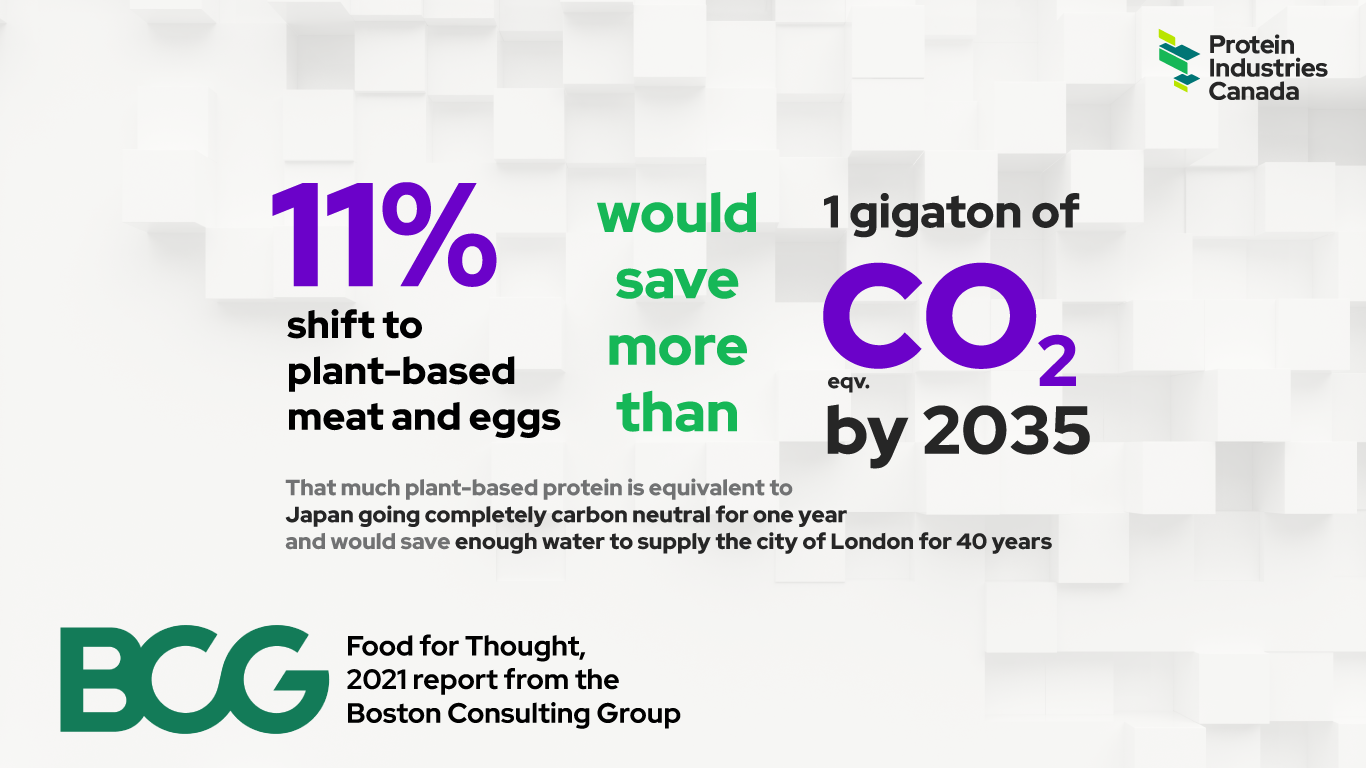Helping reduce GHG with plant-based foods
- Posted:

As industries, countries and individuals across the globe struggle to meet the challenges associated with moving to a greener planet, it’s vital to consider and embrace the role plant-based foods can play in helping reach a cleaner, more sustainable future. Protein Industries Canada is rising to the challenge through innovative collaborations that create high-protein plant-based food products, support greater food security, and add value to Canadian crops while contributing to our GDP and reducing GHG emissions in a measurable way.
Canada is a world leader in the production of high-protein crops including peas, lentils, faba, chickpeas, lupin, oats and wheat. Part of the mandate at Protein Industries Canada is ongoing collaboration with innovative entrepreneurs to turn these crops into protein-rich, workable ingredients that can be used to create accessible, healthy, flavourful food products that also offer environmental sustainability.
"Expanding the plant-based food and ingredient sector is an important step in meeting the growing demand for protein, as it offers consumers a wider variety of healthy, sustainable choices. We need to support work in this area, and promote what's being accomplished," said Bill Greuel, CEO of Protein Industries Canada.
The availability of plant-based choices for consumers grows daily with choices including plant-based waygu, salmon, cheese, milk and other dairy, now readily available in grocery stores, fast-food restaurants, convenience stores and high-end dining establishments in Canada and around the globe.
The Boston Consulting Group’s 2021 report, "Food for Thought", acknowledges that alternative proteins provide an opportunity for individuals to contribute to the fight against climate change. Further, the data indicates clearly that most consumers are willing to incorporate plant-based foods into their daily diets. A quick illustration of a solid, do-able step for Canadians involves each of us choosing a plant-based option two to three times a week.
To further reference “Food for Thought", just an 11 per cent shift in the consumption of meat and eggs would lead to a significant reduction in GHG emissions: “…by 2035, the [11 per cent] shift to plant-based meat and eggs alone will have saved more than 1 gigaton of CO2eqv. That’s the equivalent of Japan going completely carbon neutral for an entire year. Eating that much plant-based protein would save enough water to supply the city of London for 40 years.”
Looking beyond a small personal shift in addressing climate change are broader options including investment in the sector via existing food companies, small business startups or larger plant-based industries. These choices offer participation in carbon reduction programs and in making an active effort to better understand the way today’s food, feed and ingredients can move toward reducing harmful emissions further.
The demand for plant-based foods is forecast to surpass $250 billion globally by 2035. For Canada, we believe that translates to $25 billion a year of new economic activity, 17,000 new jobs and significant movement toward a healthier, more sustainable world. In addition to these benefits, it’s important to consider how plant-based foods and our personal choices, knowledge and actions can assist Canada in reaching our GHG emission reduction targets and how each of us can do better to invest in our planet.
